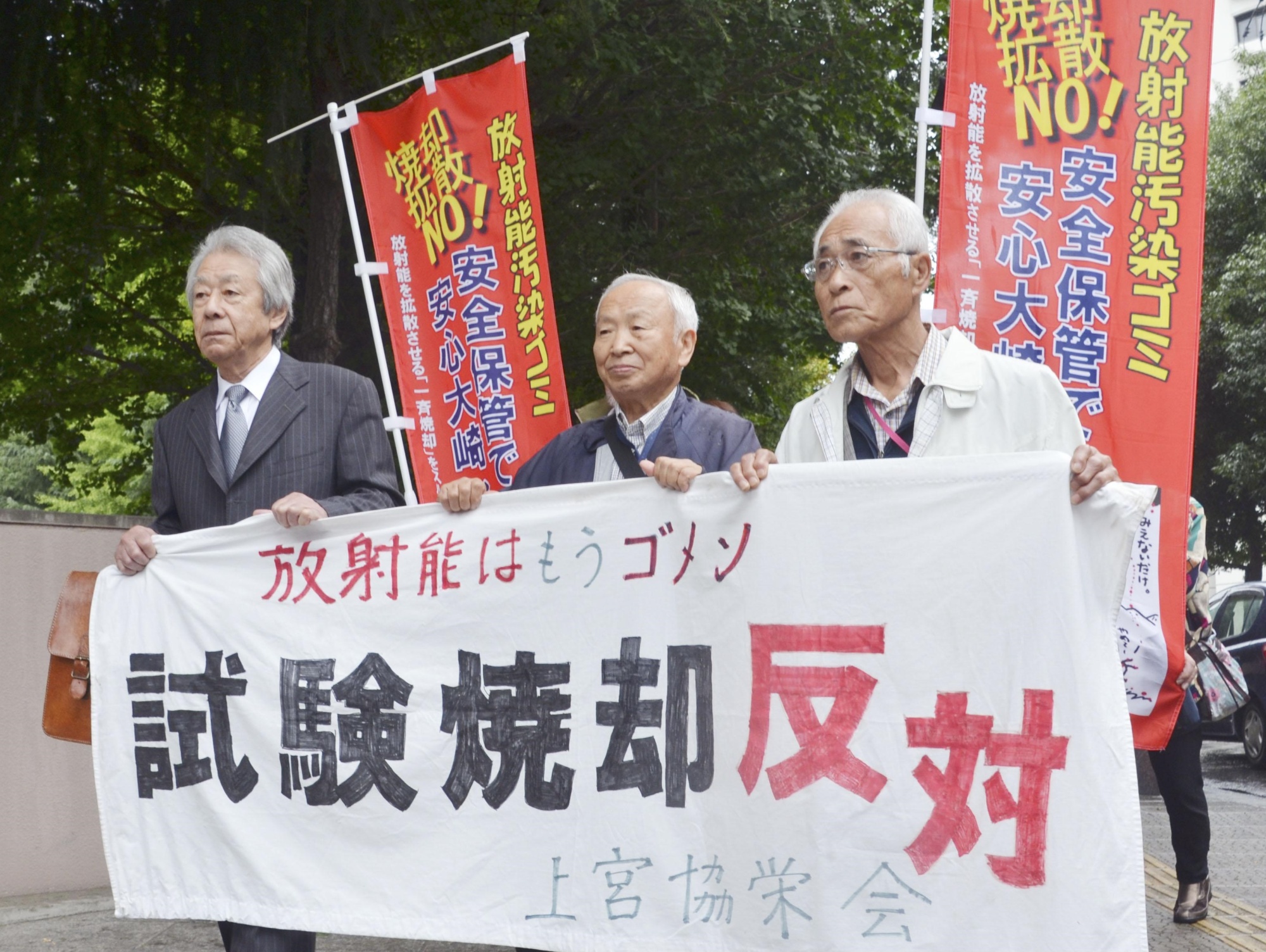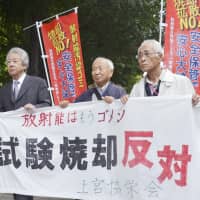Residents in Osaki, Miyagi Prefecture, filed a lawsuit Thursday seeking to prevent a local public association from burning radiation-tainted waste generated by the 2011 Fukushima nuclear crisis.
Osaki, located about 120 kilometers north of the city of Fukushima, has been keeping some 6,000 tons of tainted grass and rice straw containing radioactive substances in excess of state standards, and the association in charge of waste disposal is scheduled to start burning it from Monday.
The residents filed the suit with the Sendai District Court in the hope of suspending the ¥21.6 million budget for the incineration, claiming the association failed to keep an agreement that it would alleviate residents' concerns.
"The agreement was a strong message that we would protect the environment for future generations," said 79-year-old Tadaetsu Abe, who is leading the plaintiffs. "The public administration has ignored the residents' wishes."
The association, called the Osaki Area Integrated Administration of a Large Region Office Work Association, declined to comment, saying it has not seen the plaintiffs' claim.
The Fukushima No. 1 power plant, hit by a major earthquake and tsunami on March 11, 2011, suffered three core meltdowns and spewed radioactive material into the air, contaminating wide areas of the prefecture.
The waste stored in Osaki contains radioactive substances of up to 8,000 becquerels per kilogram. Each municipality is responsible for radioactive waste disposal.
Some 170 residents opposed to the incineration requested an audit of the city's budget on the waste disposal, but it was rejected as of Sept. 13.




